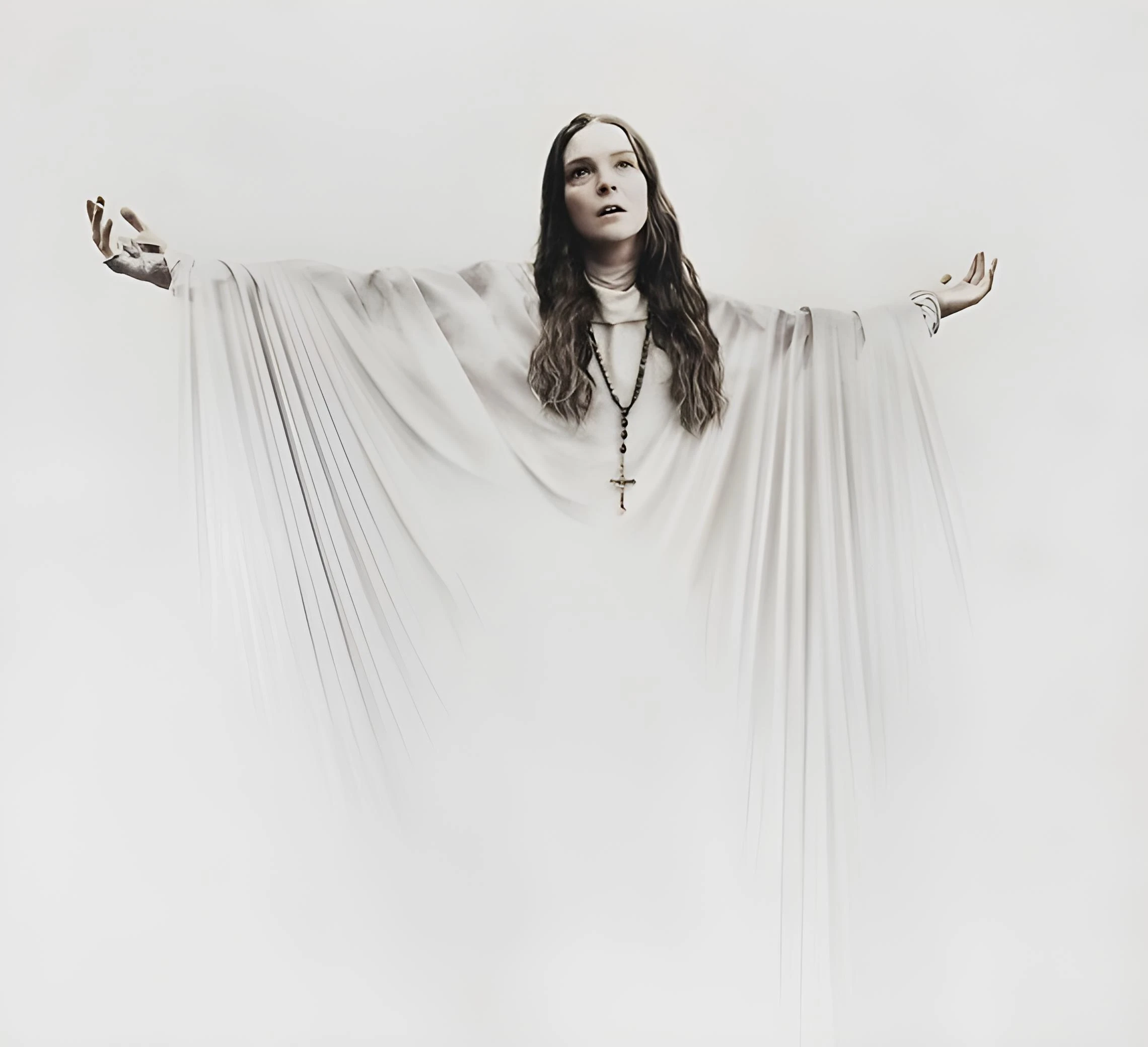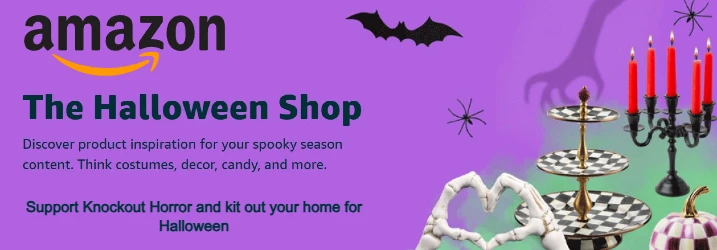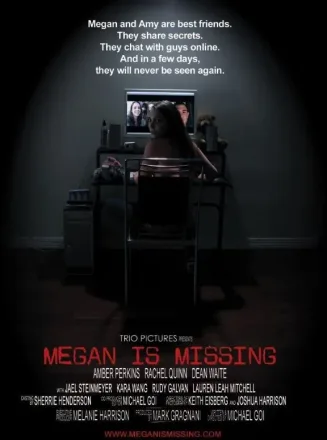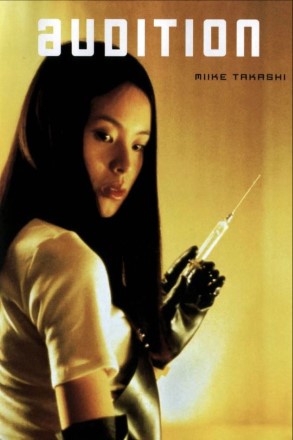Saint Maud (2019) Movie Review - A Disturbing Deep Dive into Psychosis
Welcome to Knockout Horror. There are some things in life that are far more terrifying than ghouls, ghosts, and the spooky supernatural. One of the most overlooked, yet absolutely horrifying, things that can happen to a person is the loss of their own mind. Whether it is due to the perils of aging or an unfortunate psychosis based disorder that twists your reality into something completely foreign and, ultimately, harrowing. There are few experiences more devastating and sad. Today’s movie, Saint Maud, explores that very subject.
I suppose I should clarify something, really. As with our review of the fantastic Scottish movie Calibre, Saint Maud is a movie that straddles a few genres. It’s part folk-horror, part thriller, part mystery, and part drama. That makes sense, though. This is a movie that goes heavy into the psychological and melds together a lot of different themes. Don’t expect the most overtly horror themed movie ever, though, when going into this.
I should also add, we have covered Saint Maud in a Horror Movie Ending Explained article so feel free to go and check that out if you have just watched the movie and are looking for answers. Keep in mind, however, that while this review is spoiler free, the ending explained is not.
Saint Maud
Saint Maud follows the life of Maud (Morfydd Clark), a nurse providing palliative care for a woman called Amanda (Jennifer Ehle) in the extremely depressingly presented seaside resort of Scarborough. Amanda, who was once a world renowned dancer, is suffering from terminal cancer and Maud has been assigned to care for her in her dying days.
Although we know little about her past, it appears as though Maud once worked at a nursing home but was involved in an harrowing incident. Formerly something of a party girl with an affinity for hook ups; she has since converted to Christianity (Catholicism I believe). Maud has become extremely devout in her beliefs, some might say fanatical. She believes God speaks directly to her and is instructing her personally. She sees signs of God in everyday mundane things and all of her actions are based around her religious beliefs.
In stark contrast to Maud, Amanda is a free spirit used to living life in the limelight. After touring the world as a dancer, living the high life, she has been diagnosed with terminal cancer. She is confined to a wheelchair and feels jaded by her current existence. Amanda struggles to cope with the boredom of her everyday life. She smokes and drinks profusely and spends much of her time with a lady, Carol (Lily Frazer). Amanda pays Carol for sex and company but also spends time with another man. Amanda is wry, quick witted, and sceptical of life as a whole.
An Interesting Dichotomy
Maud is employed to provide care for Amanda. This opens up an interesting relationship between two entirely different types of people. The religious Maud, devout and living without sin but with a deeply disturbed past, contrasts heavily with Amanda, the hedonistic former world famous dancer devoid of belief in anything. The two develop an almost codependent relationship. Maud needs Amanda to satisfy her need to care for someone and feel validated. Amanda needs Maud to ease the crippling boredom that her life is overwhelmed by.
Maud notices that Amanda is being visited by Carol frequently. It is apparent to Maud that Amanda is paying Carol for sex. Maud doesn’t approve of this debauchery as it evidently goes against her religious beliefs and she is desperate to save Amanda’s soul. Under the guise of protecting Amanda, Maud warns Carol to leave and never contact her again. It’s at this point that things begin to unravel.
To Amanda, both Carol and Maud are entertainment. An escape from the mundane routine of life as a very sick individual. Now that the bright lights of fame have faded, she needs the company and depends on both women to fulfill certain needs. Now that Carol has been pushed away, Amanda takes her pain out on Maud, embarrassing her and, inadvertently, unleashing a paranoia and rage that will, ultimately explode into something much more sinister.
Slow-burn But Deeply Disturbing
We spend the entirety of this movie as a fly-on-the-wall to Maud’s life. Everything she goes through, we are privy to first hand and, in most cases, witness in the exact same way that she perceives. Whether that is an accurate depiction of what is going on or not.
Maud experiences a range of visions throughout this film. At times she speaks to God, at times she self flagellates, she sometimes sees others as demons. All of which provides the driving force for both the narrative and the horror. She is declining at a rapid rate and falling deeper and deeper into delusion. A delusion which threatens to completely consume her and anyone around her.
Consequently, this is a slow movie that whispers rather than shouts. There aren’t any outlandish scares, there isn’t an overt sense of horror, there isn’t even an antagonist, so to speak. You are watching a character sink into a psychotic state that blurs the lines between reality and fantasy. This will, no doubt, leave some viewers wanting. If you expect a traditional horror movie, you are going to be disappointed.
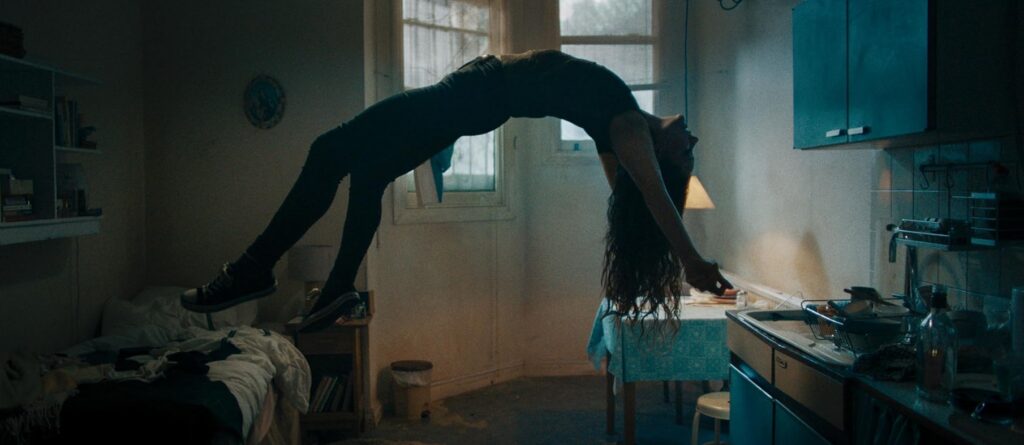
With that being said, the way the events in this movie are presented is truly disturbing. It’s tough to see a character that seems rather decent slowly decline. Maud takes misstep after misstep and doesn’t seem to have a single person in her life who she can trust to help her. It’s really quite sad.
She spends hours alone in her dilapidated flat and even when she ventures out to find solace in company, she is taken advantage of. This is a tough story to watch because it reflects on the actual reality of life for many who live with mental illness. This plays into another important observation about Saint Maud’s story.
Is It All In Her Head?
There is a prevailing question throughout Saint Maud of whether what she sees is actually real or simply a result of a devastating mental illness. This melding together of mental health and religion is something that director Rose Glass has managed to do incredibly well. Better than many other movies I have watched in fact and right up there with They Look Like People.
It’s easy to understand how viewers never quite know reality from psychosis when it comes to Maud’s visions. The presentation of the two elements being one and the same is so seamless it is hard to tell. You never quite know which of the two Maud is experiencing and it is deliberate. This is the reality of psychosis and the reality of Maud herself. As a sufferer of Bipolar Disorder 1, I found this movie to be remarkably accurate with its depiction of psychosis.
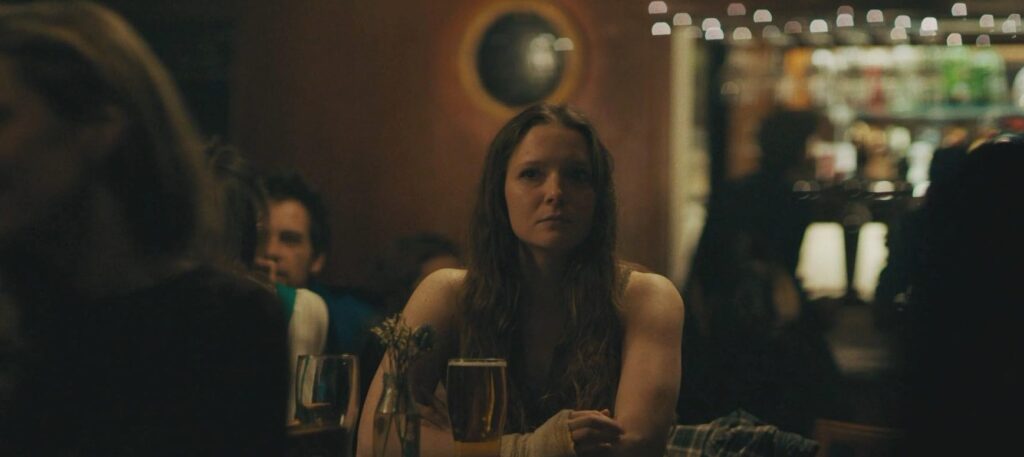
Glass touches on that very distinct tendency for conditions like schizophrenia to bleed over into religious ideation. Tugging and pulling at the narrative to keep the viewer guessing but always pushing it back towards the centre to keep the ambiguity alive. It’s fascinating stuff and I applaud Glass for her ability to make it work so damn well. The final harrowing scenes should leave the viewer in no doubt but the journey there is full of questions and few answers.
Fantastic Directing, and Cinematography
I think people would have a hard time believing that this is Rose Glass’s feature length directorial debut. What a fantastic effort and a new name to watch out for in the horror world. (Worth noting as I update this review that she knocked it out of the park with follow up title Love Lies Bleeding). Everything is beautifully done from the pacing and style right through to the cinematography, story telling, and everything in between.
The decision to use Scarborough as the backdrop for this movie was pretty inspired. This once incredible town is somewhat down on its luck, gloomy, and depressingly grey. It almost acts as an analogue for the characters in the film, both of which are long past their glory days.
Saint Maud features some fantastic acting performances from the two leads. Morfydd Clark, as Maud, is incredible. She has a hell of a task basically carrying the entire movie shot by shot. She is very fitting as a meek, pious woman of faith. You can also entirely believe the darker elements of her character. Subtle facial expressions reflect deep emotions. On top of this, she carries with her a sense of vulnerability that belies some of the events in the film.
Jennifer Ehle is also fantastic as Amanda. She adds an incredibly fitting sarcastic tone to the character. Jennifer perfectly represents the globe trotting, high profile, dancer she portrays. She also does a great job of evoking sympathy from the viewer given her condition. We are supposed to see her as bitter and spiteful. Jennifer Ehle forces us to see what the cancer has stolen from her and draws sympathy. She is likeable but with a hint of pretension. There is always the suggestion that she could be make your life very difficult if you got on the wrong side of her.
Should You Watch Saint Maud?
You should definitely watch Saint Maud but with a couple of caveats. Don’t expect a traditional horror and don’t expect to be all that scared. Saint Maud is a Psychological horror that is far more eager to tell a complex story of the perils of psychosis colliding with religious ideation. It’s an utterly bleak, hopeless, and frankly disturbing film that represents one of the most accurate in terms of horror depictions of mental illness. Prepare to feel very sad and quite depressed. A stunning debut for Rose Glass.
Our Scoring Philosophy: A Fair Fight
Horror is a genre that thrives thanks to indie film makers and low budget creators. At Knockout Horror, we firmly believe that every movie that we review deserves a fair fight. That's why we grade on a curve. Our star ratings are all about context, judging a film on what it achieves with the resources it has.
A 4-star rating for a scrappy indie horror made for $10,000 is a testament to its ingenuity and raw power. A 4-star rating for a $100 million blockbuster means it delivered on its epic promises. We don't compare them side-by-side; we celebrate success in every weight class, from the back-alley brawler to the heavyweight champion. Please keep this in mind when considering star ratings.
Disclaimer: Images, posters, and video stills used in this review are the property of their respective copyright holders. They are included here for the purposes of commentary, criticism, and review under fair use. Knockout Horror makes no claim of ownership and encourages readers to support the official release of all films discussed.

